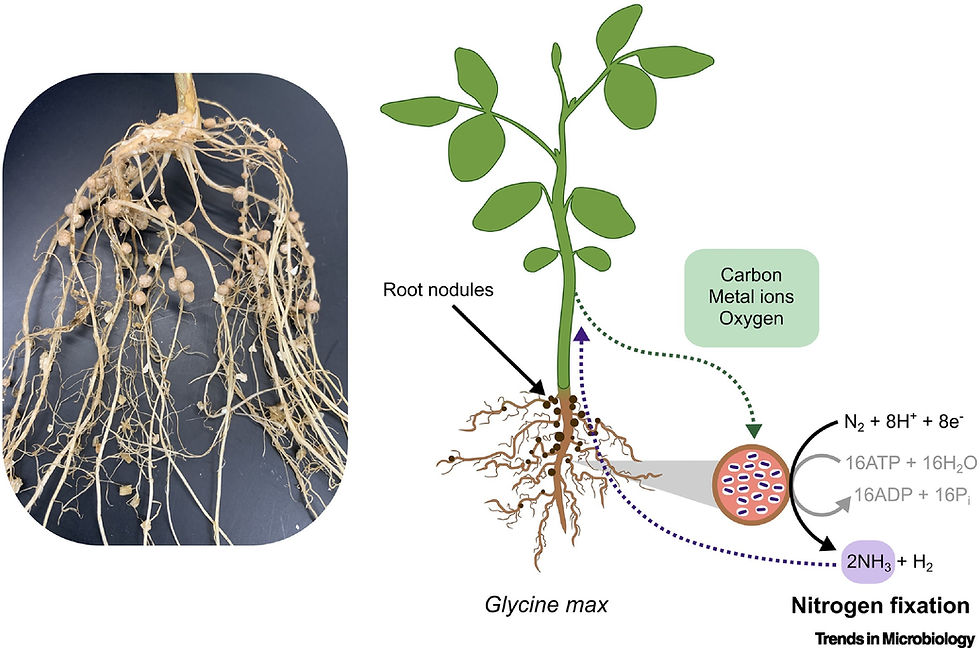Understanding externalities in agriculture, and their importance for organic producers
- Miguel M.LS.

- Jul 5, 2021
- 3 min read
Updated: Dec 19, 2025
Whenever a good is produced (let's say, an airplane, a coffee cup, or, for the agricultural sector, a pound of tomatoes or a single tomato) the process of production itself has consequences for the whole of society. This means that a whole lot of people who didn't agree to be involved in the consequences of that production receive the consequences of the production nevertheless. The name that economists have for that burden is an externality, as in the externalization of a cost: you take the whole of the benefits, and somebody else (or everyone else) pays part of the costs.
A good example is in the unrestricted usage of inorganic fertilizers. Someone may consider it cheaper to go above and beyond with their fertilization, just to make sure the soil is really soaked with that sweet nitrogen, and they'll certainly reap the benefits for that in the form of a high-yielding harvest. But after the first rains of the season, a good deal of those nitrogen-heavy fertilizers will wash up to the closest bodies of water, and they'll become everybody's problem—everybody but the farmer's, or everybody and the farmer's at the very least. A whole community that doesn't directly profit from the actions of the farmer still has to pay for part of the costs that derive from his business. That exactly is what has been happening in the whole world, but scientists and economists have only recently begun to calculate the impact of the many externalities of agricultural production as a whole (such as in the impact on the water quality of the United States, for example).
For organic agriculture in particular, a calculation of the actual externalities of traditional practices of farming could mean a complete revolution in the market. With the increasing popularity of carbon taxes (between 2005 and the present, nearly 50 new initiatives for carbon taxation have passed in places as diverse as Australia, South Africa, the European Union and China), a 2020 German study by a team of researchers from the universities of Munich, Greifswald and Augsburg that suggests reverting the payment of externalities to agricultural producers could begin the process towards tilting the market share in favor of organic produce. Though currently held back in their competition against non-organic foods by the lower prices of these, an internalization of the agricultural externalities of traditional food production could result in something like the following graph (fig. 2 in the article):

The cost of conventional foods could rise as high as 146% for meat, 91% for dairy and 25% for plant-based produce. Even if LUC (land-use change) surcharge were eliminated, organic produce would still be cheaper overall.
But wouldn't this increase in the prices of food revert ultimately to the consumers? What would happen to meat producers? And why can't we just keep at it with our current system? From these questions, the last one is the easiest to answer: these are costs already paid by the government, and indirectly by the taxpayers. As the cost of dealing with these unaddressed externalities rises (as rivers get more and more polluted because farmers keep spraying their fields with inorganic fertilizers, as they believe the government will have to clean it up), these will have to be paid by someone, and the fairest way would be for the polluter to pay them. As for the first two, why not read the article? After all, it's right here.



Comments